The race to better 'the electric vehicle experience'
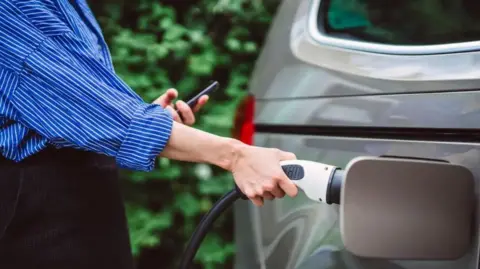 Getty Images
Getty ImagesThe deadline is just a decade away. From 2035, if you buy a new car in the UK, it will have to be 100% emissions free.
But while the pressure to move to electric vehicles (EVs) is transforming the car making landscape, there are firms in the UK seizing an opportunity and creating jobs.
They will, however, have to overcome the barriers that studies show still deter motorists from making the switch – cost, range anxiety, charging time and infrastructure.
The Department for Transport said one in five new cars sold in May was electric, with the UK leading Europe in EV sales this year.
The race to develop consumer-friendly EV technology is on.
Rules imposed to speed up the transition to electric vehicles in the UK partly drove the decision to close the Vauxhall plant in Luton in March, with the loss of more than 1,000 jobs.
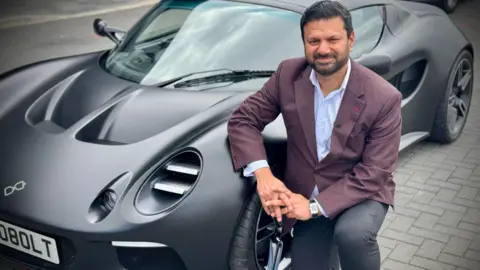
For manufacturers, the goal is to make EVs as quick and easy to use as petrol and diesel cars.
The Cambridge start-up company, Nyobolt, believes that starts with battery charging.
In track tests, in a purpose-built sports car, a new battery developed by Nyobolt charged from 10% to 80% in four minutes and 37 seconds - from a 350kW charger.
It also has a long life span – able to charge 4000 full cycles while maintaining over 80% battery retention.
Vice president Ramesh Narasimhan says it is "like filling up with fuel".
"Most cars today, even with fast charging, take around 40 minutes to charge," he said.
"That takes time away from the customer, and it means planning journeys more."
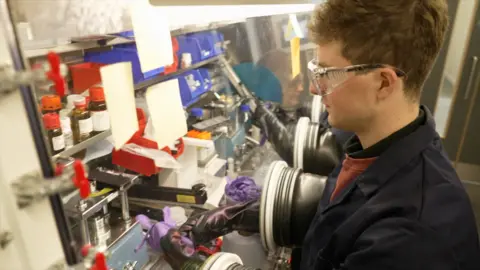
The race to develop this technology is fierce.
The Chinese company BYD announced an ultra-fast charging battery earlier this year.
It has overtaken Tesla as the best-selling EV maker in the world, and has just launched a car in the UK. In China, which has prioritised advances in this area, EVs are now mainstream.
But the success of Nyobolt's current technology relies on consumers accepting something different.
It is not producing batteries with long ranges, because government data suggests 99% of car journeys in the UK are within 100 miles (161km). The test car had a range of 155 miles (250km).
"Who needs a battery that will last 1,000 miles?" said Mr Narasimhan. "Why not have a smaller, lighter, cheaper battery which uses fewer natural resources to make?"
But Tom Stacey has his doubts.
As a senior lecturer at Anglia Ruskin University, he studies consumer attitudes to EVs.
"Nyobolt's approach is definitely common sense," he said.
"But drivers have spent decades using cars that are fast to fill up and last for three or four hundred miles, so it's hard for them to accept anything else.
"It's different in industry and business because they focus on reducing downtime and cost - so they would see the advantage of technology like this."
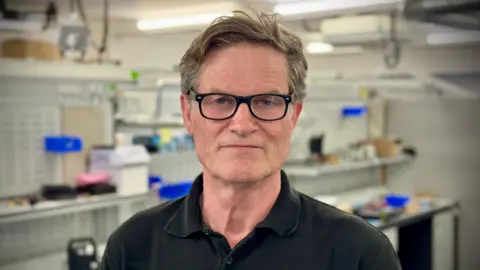
The secret to Nyobolt's battery lies in the anode - the part of the battery which receives electrons when charging and releases them when the battery is being used.
The company uses Niobium Tungsten Oxide which Steve Hutchins, vice president of engineering and operations, says has addressed some of the issues associated with lithium-ion batteries.
"It means the battery can charge faster, using higher power, without getting mega hot and entering the conditions which cause them to potentially catch fire," he said.
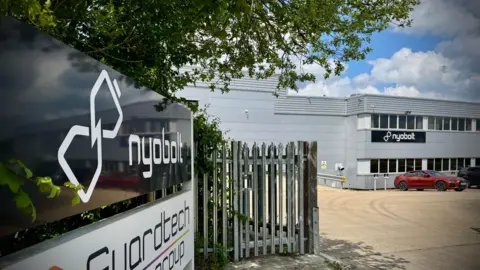
The company is manufacturing its anode material at a new factory in Haverhill, Suffolk because "it's really important to have production close to the researchers in Cambridge".
About 70 staff are expected to work at the site once fully operational, but that relies on demand for the product. The company is in talks with a number of manufacturers, but even though EV sales are increasing, it takes time for companies to invest.
"Given the safety tests that have to take place, it could take around four years to get this to market," the company said.
The Society of Motor Manufacturers and Traders says the charging infrastructure remains the biggest hurdle in changing attitudes to EVs.
"With the UK public charging network expanding but far from complete and still costly, many drivers understandably prefer longer-range models," said chief executive, Mike Hawes.
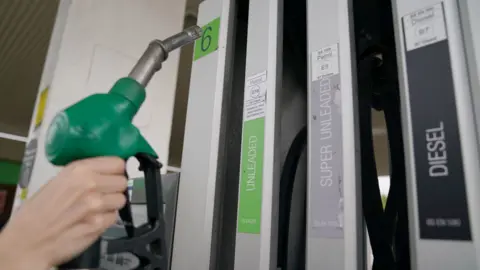 PA Media
PA MediaAs of May 2025, there were 80,998 public charging points in the UK - 8,284 of them were 150kW or above.
Nyobolt's batteries charge with a 350kW device. BYD's newly unveiled battery charges at 1000kW.
Gridserve, a company specialising in EV charging infrastructure, has started to roll out 350kW devices at service stations along the M1, M4 and "electric forecourts" in Norwich and Braintree - but they make up a small fraction of the overall public system.
Mr Narasimhan, however, thinks there is still time to address that problem.
"If the manufacturers spoke to the government now and said 'we'll have this technology ready in a few years' then work can start on the necessary charging network at the same time," he said.
The Department for Transport said it was investing £4bn in helping people switch to EVs and that the public charging network was "expanding at the rate of one every 29 minutes.
"As a result, EV uptake is accelerating," a spokesperson said.
"One in five new cars sold in May was electric, and the UK led Europe in EV sales in early 2025. Infrastructure will continue to match rising sales."
No specific data was available on 350kW chargers.
For now, Nyobolt's batteries are powering robots - a market which is faster to break into. It also recently secured $30m in funding to continue its research and to develop batteries for heavy vehicles.
The government wants the UK to become a leader in battery technology, and runs a scheme to help, which Nyobolt has benefited from, but it is clear that even when companies develop a viable product, the journey to adoption can be slow and uncertain.
Follow Cambridgeshire news on BBC Sounds, Facebook, Instagram and X.
